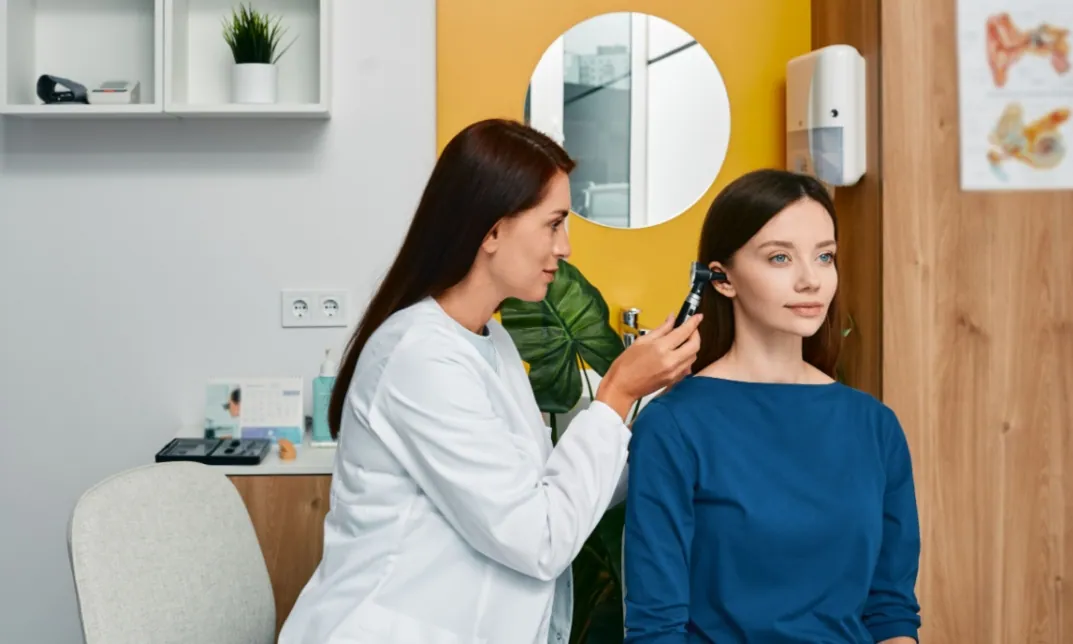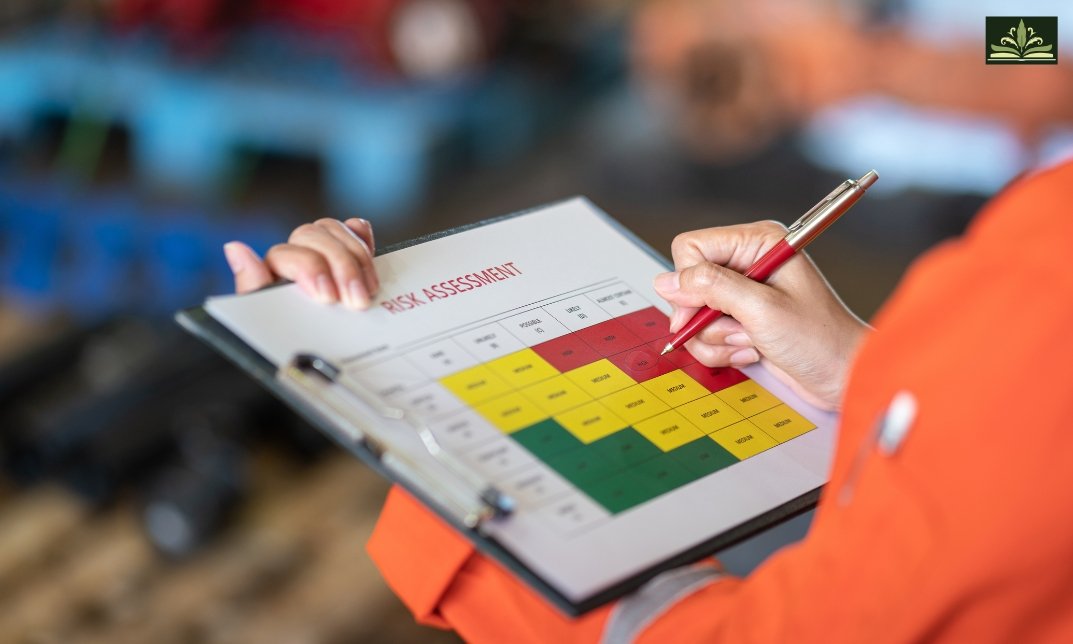No products in the cart.
Ever wondered how to become an audiologist and help people hear the world around them? It’s one of those careers that mixes science, technology, and care — and makes a real difference every day. Audiologists test hearing and balance, fit hearing aids or implants, and support people of all ages, from tiny babies to older adults, across the NHS and private clinics.
In this guide, we’ll show you exactly what to do — from getting the right audiology degree UK to understanding the full audiologist career path. If you love helping people and want a career that’s smart, practical, and full of purpose, you’re in the right place.
How to Become an Audiologist: 8 Important Steps
Step 1: Understand the Role of an Audiologist
So, what does an audiologist do all day? A lot more than you might think! Audiologists test people’s hearing and balance (that’s called vestibular testing), help with tinnitus management, and fit hearing aids to make sure they work perfectly. They also work closely with ENT doctors, speech and language therapists, and families to help people communicate better.
You’ll find audiologists in all kinds of places — NHS hospitals, private clinics, schools, and community health services. Whether they’re helping a child hear clearly for the first time or supporting an older person with hearing loss, every day in audiology NHS work is about improving lives through sound.
Step 2: Get the Right Qualifications
To become an audiologist, you’ll need the right mix of study and hands-on training. Most people take one of two routes.
The first is a BSc (Hons) in Audiology or Healthcare Science (Audiology) — a three-year degree that includes real work experience through the NHS Practitioner Training Programme (PTP). It’s the most common path and gives you a great start in audiology NHS training.
The second option is to study a science degree first — like psychology or biomedical science — and then complete a postgraduate MSc in Audiology.
Whichever route you choose, make sure your course is approved and includes clinical placements that meet NHS standards. You can find detailed advice about audiologist qualifications UK and choosing the right audiology degree UK on the National Careers Service website.
Step 3: Registration – HCPC or AHCS?
Here’s the easy version:
- The title “audiologist” isn’t protected by law — but the title “Hearing Aid Dispenser (HAD)” is.
- To test hearing and sell hearing aids privately, you must register with the HCPC (Health and Care Professions Council).
- If you plan to work in the NHS, you’ll usually register with the AHCS (Academy for Healthcare Science).
- The RCCP has now joined the AHCS, so it’s all in one place.
Want to stay connected? Join BAA (British Academy of Audiology) or BSHAA (for Hearing Aid Dispensers). That’s it — once you’re registered, you’re ready to start your professional audiology journey!
Step 4: Gain Practical Experience
Learning in class is great — but audiology is all about real people. That’s where audiology placements come in!
During your degree or NHS Practitioner Training Programme (PTP), you’ll spend time in real clinics. These supervised practice placements let you test hearing, fit hearing aids, and talk with patients while an experienced audiologist guides you.
You’ll also learn how to keep records, write reports, and work as part of a care team. By the time you finish, you’ll feel confident, skilled, and ready for your first audiology job!
Step 5: Choose Where You Want to Work
Now comes the fun part — choosing your workplace! There are lots of options for audiologist jobs UK wide.
- You can work in NHS audiology departments, helping patients in hospitals or community clinics.
- You might join private audiology providers, like high-street hearing centres, where you fit and sell hearing aids.
- Some audiologists work in schools or community services, supporting children with hearing needs.
- Others go into research or work for companies that make hearing aids, implants, or hearing tech.
Each setting is a little different — some pay more, some offer flexible hours — but all let you use your skills to help people hear better every day.
Step 6: Consider Specialist Areas
Once you’ve got experience, you can choose a special area that really interests you.
Some audiologists work with children in paediatric audiology, helping them develop speech and hearing skills. Others focus on vestibular audiology, which deals with balance problems. You could also train in tinnitus therapy, helping people manage ringing or buzzing in their ears.
There are even more options — like cochlear implants, auditory processing, research, or teaching. To move into these areas, you’ll usually take extra courses (CPD), get supervision, and build up your own case load.
It’s all about finding the part of audiology that excites you most and helps people in ways that matter to you.
Step 7: Audiologist Salary & Progression (2025/26)
Let’s talk about pay — because your hard work deserves it!
In the NHS, audiologists are paid using Band levels:
- Band 5: £31,049 – £37,796
- Band 6: £38,682 – £46,580
- Band 7: £47,810 – £54,710 (from April 2025, England)
If you work in London, you’ll earn a little more thanks to the HCAS (High-Cost Area Supplement).
In the private sector, pay can vary. Some companies offer bonuses or commission for hearing aid fittings or managing larger caseloads. So whether you choose NHS audiology or private practice, the audiologist salary grows as your experience and skills grow too.
Step 8: Keep Learning and Stay Registered
Your learning doesn’t stop once you qualify — in audiology, it’s an ongoing journey!
To stay registered, you’ll need to keep up with audiology CPD (continuing professional development). This means attending training, workshops, or short courses to update your skills. You’ll also have regular clinical supervision and follow rules on safeguarding and data protection.
Joining professional groups helps too. The BAA membership (British Academy of Audiology) gives you access to learning resources, events, and a strong professional community. If you work as a Hearing Aid Dispenser, BSHAA offers great support for practice and business growth.
Keep learning, stay connected, and you’ll always be at your best for your patients.
What Skills Do You Need to Be an Audiologist?
To be a successful audiologist, you need both people skills and technical know-how. Here’s what matters most:
- Good communication: You’ll explain hearing tests and results clearly so patients understand what’s happening.
- Empathy and patience: Many patients feel worried or frustrated, so being calm and kind makes a big difference.
- Attention to detail: Hearing tests and hearing aid fittings need accuracy — even small errors can affect results.
- Problem-solving: Every patient is different. You’ll think carefully to find the best solutions for each person.
- Technical confidence: You’ll use hearing test machines, software, and modern hearing technology every day.
- Teamwork: You’ll work with ENT doctors, speech therapists, and teachers to give complete patient care.
- Organisation: Keeping clear notes and managing patient information safely is an important part of the job.
If you enjoy helping people, love learning new technology, and have a caring nature, audiology could be the perfect fit for you.
Alternative Routes Into Audiology
Not everyone starts their audiology journey the same way — and that’s okay! You might begin as a Hearing Care Assistant, helping with simple hearing tests and patient care. It’s a great way to learn the basics while deciding if audiology is right for you. Another option is a Healthcare Science apprenticeship (Audiology pathway), where you earn while you learn and gain real clinical experience. Once you’ve got a solid foundation, you can move up to a full degree and work toward AHCS or HCPC registration, depending on your career goals.
If you’d like a flexible and affordable start right now, online CPD courses are a smart choice. They let you study at your own pace and build skills step by step. That’s where the Wise Campus’s Audiology Course really shines. It’s perfect for beginners or assistants who want to understand hearing care deeply, boost confidence, and prepare for future qualifications. With Wise Campus, you can start learning today — no waiting, no stress — just clear progress toward your audiology career.
Final Thoughts: Is Audiology the Right Career for You?
If you enjoy science, technology, and helping people, audiology could be the perfect match for you. It’s a career where every day brings something meaningful — from testing hearing to improving someone’s quality of life. The training path is clear, the demand across both NHS and private sectors is strong, and there are many ways to grow.
Whether you see yourself working with children, supporting balance and tinnitus care, or specialising in cochlear implants, audiology lets you make a real difference. It’s a career built on care, curiosity, and communication — and the impact you make can truly change lives.
FAQs About Becoming an Audiologist
1. What qualifications do I need to be an audiologist?
You’ll usually need a BSc (Hons) in Audiology or Healthcare Science (Audiology). Some people study a related science degree and then complete a postgraduate MSc in Audiology.
2. Is it hard to become an audiologist?
Not really — it just takes dedication! The course includes both classroom learning and clinical placements, so you’ll gain real-world experience along the way.
3. How long does it take to train to become an audiologist?
Most audiology degrees take three years full-time, or longer if you study part-time or do an apprenticeship.
4. Is an audiologist a doctor?
No — audiologists are healthcare professionals, not medical doctors. However, they often work closely with ENT doctors to support hearing and balance care.
5. How much does an audiologist earn in the NHS?
In 2025, NHS audiologists typically earn between £31,000 and £55,000, depending on experience and band level.
6. What is the highest audiologist’s salary?
Highly experienced audiologists, clinical leads, or private specialists can earn £60,000+ a year.
7. How much do Specsavers audiologists earn?
At Specsavers, audiologists usually earn between £35,000 and £60,000, depending on their location and caseload.
8. How much do Boots audiologists earn?
Audiologists at Boots can earn £33,000 to £55,000, plus bonuses or commission for hearing aid fittings.
9. Are audiologists well paid?
Yes — the pay is competitive, especially as you gain experience or move into private practice.
10. Do audiologists have a good work-life balance?
Absolutely! Most audiologists work standard hours, with little to no night or weekend shifts, making it a balanced and rewarding career.






